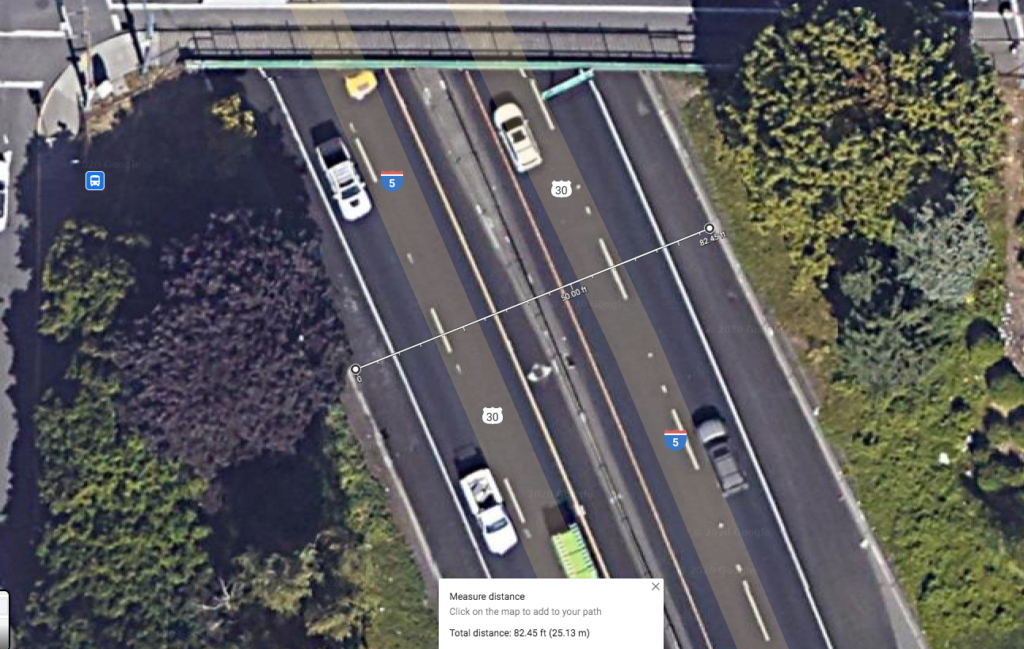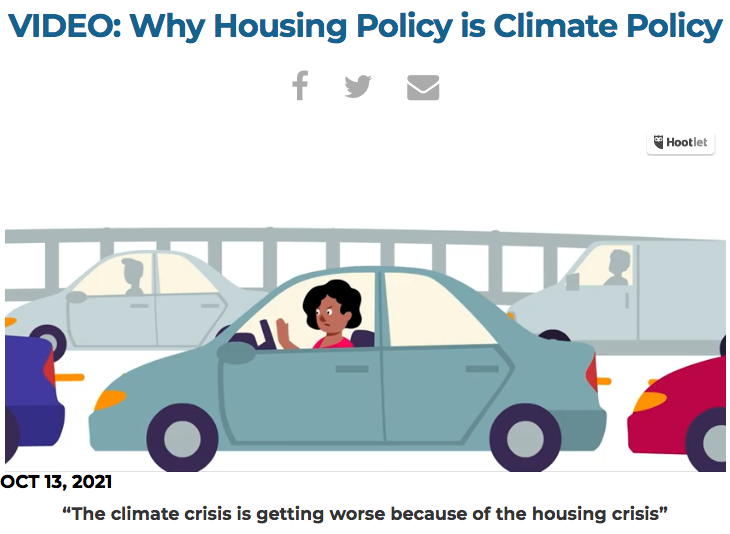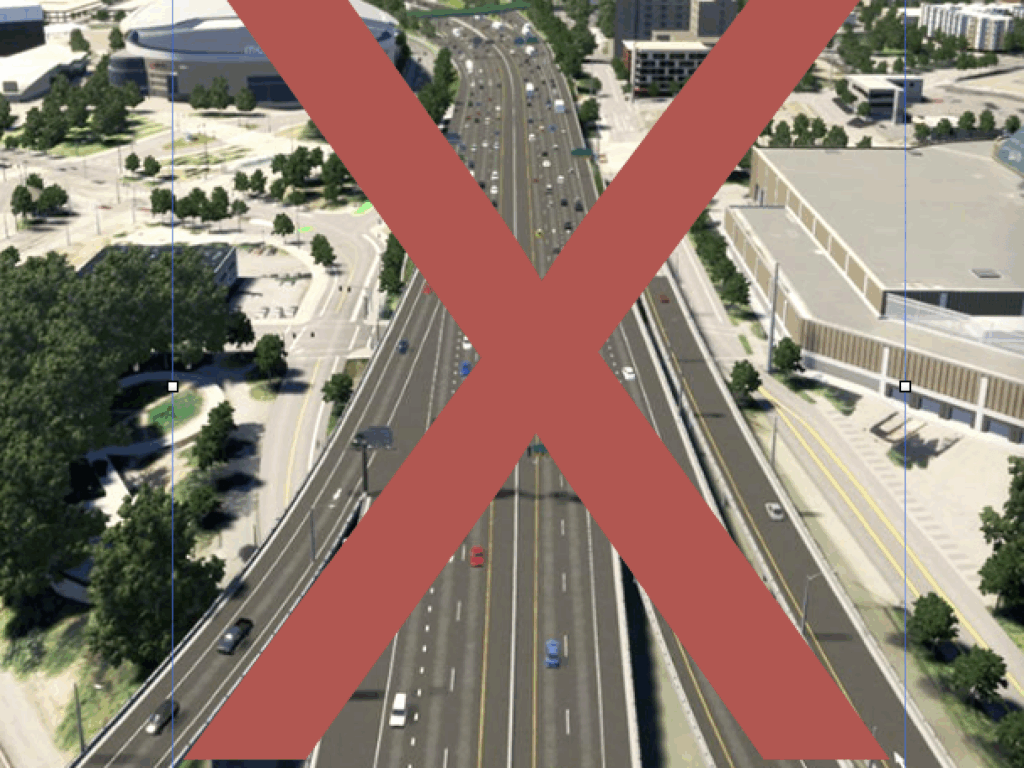What City Observatory did this week
Ten reasons you can’t trust DOT claims that widening highways reduces pollution. Highway departments are fond of ginning up traffic projections and air quality analyses claiming that wider highways will reduce pollution. It’s an elaborate con. We take a close look at Portland’s proposed $1.2 billion I-5 Rose Quarter freeway widening project and itemize the ten reasons why no one should believe claims made about its environmental effects made by the Oregon Department of Transportation.

Must read
How (not) to lessen the nation’s housing affordability challenges. Politico examines the debate in Congress over proposed measures to give assistance to first-time home buyers to help them better compete for increasingly expensive homes. Several measures aim to lessen the racial wealth gap by providing down payment assistance to first-time, first-generation home buyers. This approach acknowledges that the cumulative effect of historic discrimination in the housing market disproportionately affects buyers of color today: If your parents couldn’t manage to buy a home or if they ended up in a neighborhood with depressed home values, they couldn’t do much to help their children with a down payment. While there’s a great need to redress these historic inequities, one of the challenges with a sizable aid program for first time buyers is that it simply adds to the demand for housing, while doing little to increase supply. More capital available for housing in this market is likely to drive up home prices even faster; we may improve affordability for a few, but may worsen it for the many.
Peter Norton on the perils of the self-driving car. Historian Peter Norton has chronicled the industry-led re-writing of the literal and figurative “rules of the road” by automobile manufacturers a century ago. This re-write elevated autos and reduced those on foot to second-class citizens. The process was fed by a combination of technological optimism and a sense of manifest destiny which Norton says, the purveyors of self-driving cars are looking to repeat to advance and enshrine autonomous vehicles on the nation’s streets. In an interview with Bloomberg’s David Zipper, Norton warns that the next new thing is always, a distraction from really addressing transportation needs.
High-tech “solutions,” always just over the horizon, are supposed to offer the anticipated deliverance. The lack, however, lies not in technology but in the aspiration itself. Meanwhile the supposed solutions, in promising an eventual end to all our afflictions, divert us from transport sufficiency: an unspectacular state in which everyone can meet their practical needs.
For decades, planners and climate experts have known that sprawl-style, single-unit housing development leads to more pollution from cars. The reason is simple: Single-unit houses require more land than multi-family homes, and end up forcing their residents into ever-longer car commutes. The more people have to drive, the more climate pollution they cause.
New Knowledge
David Card wins the Economics Nobel. Berkeley economist David Card was one of three labor economists who received the Nobel award for economics this week. Along with Card, Joshua Angrist and Guido Imbens were recognized for their pioneering empirical analyses of labor markets.
Card and his late-co-author, Alan Krueger, were joint authors of a series of studies of the effect of minimum wages on employment, famously published in the book “Myth and Measurement” published in 1995. It’s an appropriate title. The notion that a minimum wage necessarily had to lower employment levels was taken as an article of faith by many, if not most economists.
Card and Krueger put that theory to the test with a series of careful analyses of quasi-experimental situations, for example, looking at the variation in employment rates in adjoining states, one of which raised its minimum wage and one which didn’t. Their work was the initial challenge to the received wisdom about the negative effects of minimum wages on employment; its subsequently been buttressed by a wide range of studies that have applied and extended Card and Krueger’s empirical techniques. As Bloomberg’s Noah Smith writes:
Card and Krueger (who sadly died before he could receive the prize) examined a 1992 minimum wage hike in New Jersey, and found that it didn’t result in a loss of jobs. They compared New Jersey to neighboring Pennsylvania, and found no job loss. They compared high-wage restaurants in New Jersey to low-wage restaurants — still, no job loss. Maybe even a little bit of job gain, actually.
Nowadays, that’s hardly an unusual finding — indeed, it’s the norm, and economists have changed their outlook on the issue as a result. But back then, it was almost heresy. The basic theory of competitive supply and demand says that when you raise the minimum wage, people get thrown out of work!
The empirical observation has triggered a shift in the theoretical analysis of labor markets: rather than being perfectly competitive, they are quasi-oligopolistic, with firms having market power over wages, which the minimum wage counterbalances. That’s not to say that there’s not minimum wage that wouldn’t cost jobs, but within some range—now easily exceeding $15 most everywhere—the minimum wage isn’t a job killer.
There is an urbanist side note here as well: The University of California, Berkeley awards its Nobel Laureates free lifetime parking spots on campus. Card, however bikes to work. Perhaps this is an opportunity for another economist, UCLA’s emeritus professor Don Shoup to come to the rescue and suggest a suitable solution; and Shoup is another scholar that the Nobel committee ought to have its eye on for his painstaking application of economic principles to the mundane field of parking.
In the news
Blogger Sam Sklar responded to our commentary “Where we embrace socialism in the US.” While he agrees with the thrust of the commentary, he’s skeptical most Americans will recognize that our attitudes about “free parking” are fundamentally socialist.


